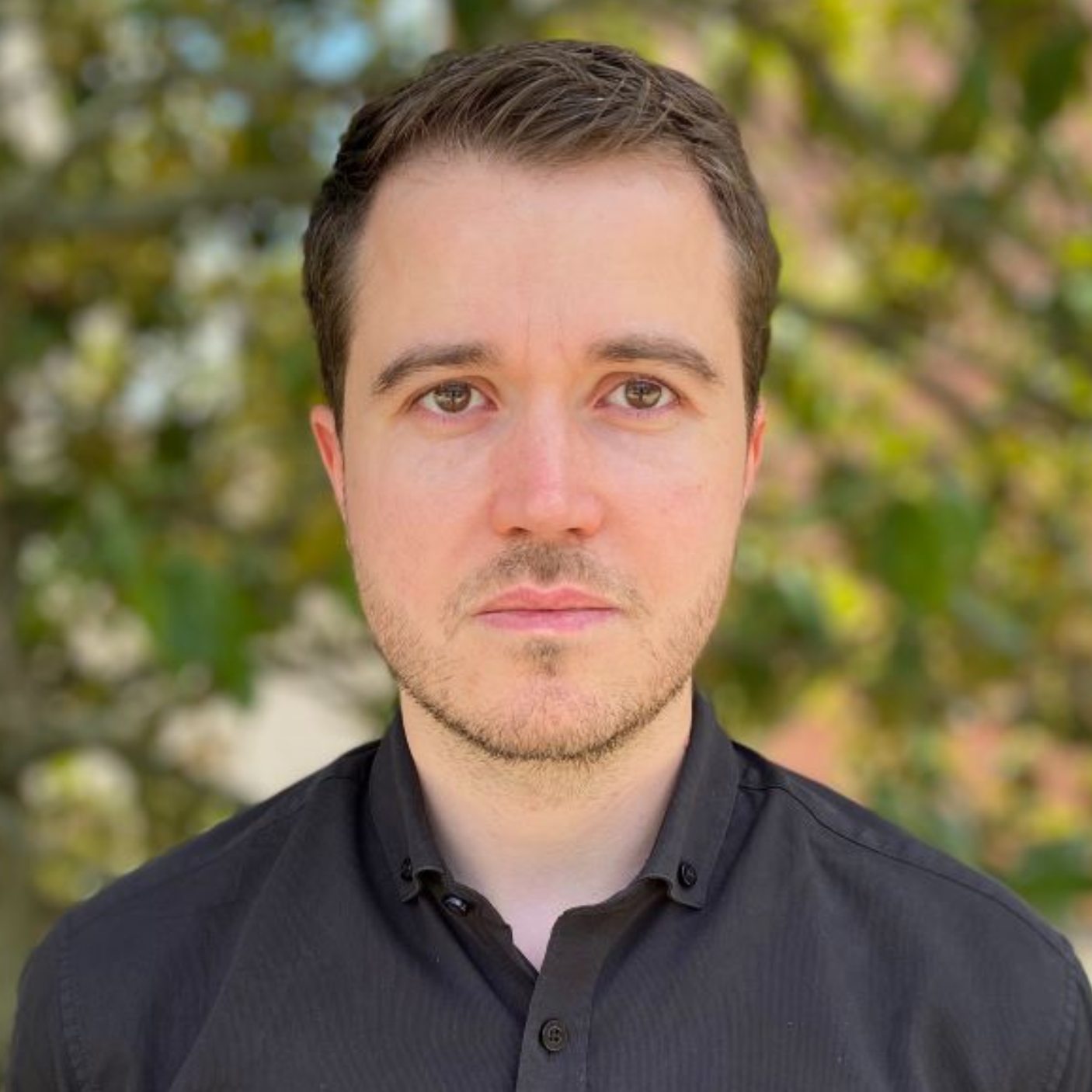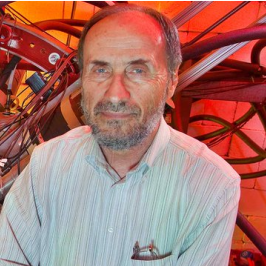Faculty

Dr. Almaraz-Calderon's research focuses on the study of nuclear interactions and how they influence astrophysical processes. Experiments are performed with the ENCORE active target and CATRiNA neutron detection array at FSU, which were built by his group. Dr. Almaraz-Calderon's group also performs experiments at Argonne National Laboratory.

Paul D. Cottle
Department ChairSteve Edwards Professor of Physics
Dr. Cottle's research focuses on the study of isovector octupole excitations with the Enge Split-Pole Spectrograph at FSU. He and his collaborators also perform inelastic proton scattering experiments at the National Superconducting Cyclotron Laboratory. The experimental program will be continued at FRIB.

Kevin Fossez
Assistant ProfessorDr. Fossez is the holder of the Facility for Rare Isotope Beams (FRIB) theory alliance bridge position at Florida State University. His research interests cover the study of open quantum systems, many-body physics, low-energy nuclear structure and reactions, as well as many other related topics. Visit his website for more information.

Kirby W. Kemper
Professor EmeritusRobert O. Lawton Distinguished Professor
Dr. Kemper works in the area of nuclear physics that seeks to extract the interaction dependence of a nuclear reaction on the intrinsic properties of the interacting nuclei.

Jorge Piekarewicz
Robert O. Lawton Distinguished ProfessorUniversity Distinguished Research Professor
Dr. Piekarewicz's main research interests focus on the behavior of nuclear matter under extreme conditions of density, such as those found in the interior of neutron stars. One of the main goals of his research is to use physical observables that may be determined from terrestrial experiments to constrain the properties of neutron stars. Conversely, he aims to incorporate observations from new telescopes operating at a variety of wavelengths - and that have turned neutron stars from theoretical curiosities into powerful tools - to elucidate the structure of nuclear matter at the extremes.

Mark A. Riley
Robert O. Lawton Distinguished ProfessorRaymond K. Sheline Professor of Physics
Dr. Riley's group performs detailed gamma-ray spectroscopy experiments to study high-spin phenomena in atomic nuclei at FSU and Argonne National Laboratory.

Mark-Christoph Spieker
Associate ProfessorDr. Spieker performs particle- and gamma-spectroscopy experiments to study low-lying nuclear structure in stable and rare isotopes. Experiments are performed at FSU with the Enge Split-Pole Spectrograph and at the Facility for Rare Isotope Beams (formerly the National Superconducting Cyclotron Laboratory) with GRETINA (GRETA) and the S800 spectrograph. Dr. Spieker's group has developed a gamma-ray spectroscopy array, called CeBrA, for particle-γ experiments at the Split-Pole Spectrograph.

Samuel L. Tabor
Norman P. Heydenburg Professor of PhysicsDr. Tabor and his group study the structure of light- to medium-mass nuclei with emphasis on high-resolution gamma-ray spectroscopy experiments and comparisons to precision microscopic nuclear models. Experiments are performed at FSU and different national laboratories.

Vandana Tripathi
Associate ProfessorDr. Tripathi's research focuses on understanding the structure of nuclei especially of those that are unstable and do not occur in nature. She focuses on gamma-ray spectroscopy (both prompt and delayed) to obtain information about excited states in nuclei and to understand the forces acting between nucleons. The experiments are carried out both at FSU and national facilities like the National Superconducting Cyclotron Laboratory at MSU and Argonne National Laboratory. Dr. Tripathi is in charge of the CLARION-2 gamma-ray spectroscopy campaign at FSU.

Alexander Volya
ProfessorDr. Volya's research work focuses on novel aspects of nuclear physics and its connections to astrophysics, mesoscopic physics, fundamental science, quantum chaos, and many-body physics in general. Using the atomic nucleus as a research laboratory his group target the generic phenomena of finite open quantum many-body systems, such as shell structure, superfluidity and superconductivity, effects of particle decay and radiation, onset of chaotic dynamics and its interplay with collective motion.

Ingo Wiedenhöver
Professor and John D. Fox Laboratory DirectorUniversity Distinguished Research Professor
Dr. Wiedenhöver is the Director of the Fox Laboratory. His group performs experiments with RESOLUT and ANASEN to study Big-Bang Nucleosynthesis and key (α,n) reactions for classical Nova nucleosynthesis. Complementary experiments are performed with the Enge Split-Pole Spectrograph at FSU and national laboratories. Dr. Wiedenhöver's group is actively developing detection systems for the different experimental setups of the laboratory.